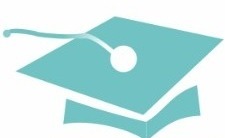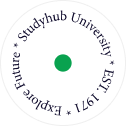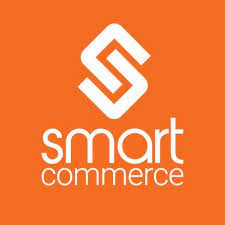Warning: Undefined variable $slider_image1 in /home/eduark/public_html/eduarkonline/about-us/about_us.php on line 792
<

"Welcome to Eduark University - Where Knowledge Inspires Greatness!"
With a focus on empowering individuals and organizations, Secession underscores our mission to create a transformative academic environment. Together, we redefine boundaries, inspire change, and build a legacy that transcends limitations. Join us as we take this journey into new horizons, driven by a shared vision of growth and discovery.
Warning: Undefined variable $slider_image2 in /home/eduark/public_html/eduarkonline/about-us/about_us.php on line 855
Warning: Undefined variable $slider_image3 in /home/eduark/public_html/eduarkonline/about-us/about_us.php on line 918
Warning: Undefined variable $fourth_image in /home/eduark/public_html/eduarkonline/about-us/about_us.php on line 1023


White Pannel Heading5
class="elementor-element elementor-element-88b5446 e-con-full e-flex e-con e-child" data-id="88b5446" data-element_type="container" data-settings="{"background_background":"classic"}">
White Pannel Para5
White Pannel Heading7
Certificate Course In Nursing
The Certificate Course in Nursing is a foundational program designed to provide students with the essential skills and knowledge required to pursue a career in the nursing profession. This course aims to equip students with the basic understanding of medical procedures, patient care, healthcare ethics, and professional nursing practices. By the end of the program, students will be prepared to offer quality care in a variety of healthcare settings, such as hospitals, clinics, and community health organizations. Course Overview: The Certificate Course in Nursing is an entry-level training program that covers the fundamentals of nursing care, medical knowledge, and clinical practices. This course is designed to introduce students to the field of healthcare, focusing on the core principles of nursing, patient care, and basic medical procedures. It provides students with both theoretical knowledge and practical experience necessary for beginning a career as a nurse or nursing assistant. Key Topics Covered: 1. Introduction to Nursing: Role and Responsibilities of a Nurse: The course will introduce students to the profession of nursing, discussing the duties, responsibilities, and expectations of nurses in a healthcare setting. Healthcare System Overview: Students will gain an understanding of the healthcare system, including the roles of various healthcare professionals and the importance of nursing in maintaining patient health and well-being. Ethics and Professionalism: The course emphasizes the ethical considerations in nursing, including maintaining patient confidentiality, providing compassionate care, and practicing professionalism in all aspects of nursing duties. 2. Anatomy and Physiology: Human Anatomy: Students will study the structure and functions of the human body, focusing on major systems such as the circulatory, respiratory, digestive, and nervous systems. Physiological Processes: The course covers key physiological processes such as digestion, respiration, circulation, and metabolism, which are essential for understanding how the body responds to illness and injury. 3. Basic Nursing Skills: Patient Care Techniques: Students will learn the fundamental skills needed for patient care, such as measuring vital signs (temperature, pulse, respiration, and blood pressure), assisting with personal hygiene, and supporting mobility. Infection Control: A crucial component of nursing, students will be trained in infection control procedures, including hand hygiene, sterilization, and using protective equipment to prevent the spread of infection. Wound Care and First Aid: The course includes basic training in wound care, dressing changes, and administering first aid for injuries or medical emergencies.
Diploma in Smart Commerce
The Diploma in Smart Commerce is an advanced course designed to equip students with the essential skills and knowledge needed to succeed in the evolving digital marketplace. As the world shifts toward digital transactions, e-commerce, and online business strategies, this diploma program provides a comprehensive understanding of various business technologies, digital marketing, e-commerce operations, and smart solutions for modern commerce. Students will learn how to use digital tools and strategies to drive sales, improve customer experiences, and manage online businesses effectively. Course Overview: The Diploma in Smart Commerce integrates modern technologies and innovative business practices, focusing on e-commerce, digital marketing, data analytics, and automation. The course is designed for individuals seeking to enhance their expertise in the digital business world, enabling them to manage and grow online businesses, e-commerce platforms, and digital marketing campaigns. By the end of the course, students will be proficient in using the latest digital tools and techniques to succeed in the competitive world of online commerce. Key Topics Covered: 1. Introduction to Smart Commerce: Overview of Smart Commerce: Students will be introduced to the concept of smart commerce, which involves the integration of cutting-edge technology and smart solutions into business operations. This includes understanding e-commerce, digital transformation, and online business strategies. Digital Business Models: The course covers various digital business models, such as B2B (Business to Business), B2C (Business to Consumer), C2C (Consumer to Consumer), and subscription-based services. Students will learn how these models work and their advantages in the digital world. 2. E-commerce and Online Business Operations: E-commerce Platforms: Students will learn how to set up and manage online stores using popular e-commerce platforms such as Shopify, WooCommerce, Magento, and BigCommerce. The course includes practical sessions on designing and managing an online store. Product Catalog Management: The course covers strategies for managing product listings, descriptions, and inventory, as well as the importance of a seamless shopping experience for customers. Online Payment Systems: Students will learn about various payment gateways, such as PayPal, Stripe, and others, and how to integrate secure payment systems into e-commerce platforms to facilitate smooth transactions.
CERTIFICATE COURSE IN ELECTRICAL & ELECTRONICS
The Certificate Course in Electrical & Electronics is a specialized program designed to provide students with foundational knowledge and practical skills in the fields of electrical and electronic engineering. This course focuses on the core principles of electricity, electronics, and electrical systems, and is ideal for individuals interested in pursuing a career in the electrical and electronics industry. It combines theoretical learning with hands-on experience, preparing students to work in various industries such as power generation, automation, telecommunications, and consumer electronics. Course Overview: The Certificate Course in Electrical & Electronics offers an in-depth understanding of electrical circuits, systems, and electronic components. Students will explore the fundamentals of electrical engineering, including the operation of electrical circuits, power generation, electronics devices, and their applications in various industries. The course emphasizes practical knowledge, enabling students to troubleshoot, repair, and maintain electrical and electronic systems. Key Topics Covered: 1. Introduction to Electrical and Electronics Engineering: Overview of Electrical and Electronics: This module introduces students to the basic concepts of electrical and electronics engineering, including the distinction between electrical systems (involving power) and electronic systems (dealing with signal processing). Applications of Electrical and Electronics: Students will gain insight into how electrical and electronic engineering is applied in everyday life, from household appliances to industrial machinery and telecommunication systems. 2. Basic Electrical Theory: Electricity and Current: Students will learn about the fundamentals of electricity, including voltage, current, resistance, and power. This includes understanding Ohm’s Law, Kirchhoff's laws, and the principles governing electrical circuits. Types of Circuits: The course covers both AC (alternating current) and DC (direct current) circuits, with an emphasis on how each type is used in various applications. Students will also explore series and parallel circuits, resistors, capacitors, and inductors. Power Generation and Transmission: An introduction to how electrical power is generated (e.g., through turbines, solar, wind), transmitted (e.g., through power lines), and distributed to homes and industries.
White Pannel Heading8
White Pannel Para7
- admin
- May 12, 2024
- admin
- May 12, 2024
- admin
- May 12, 2024
White Pannel Heading10

White Pannel Heading9

David John
Artist and Instructor
I would highly recommend Michael Richard to anyone interested in the subject matter. It has provided me with invaluable knowledge & a newfound passion for the topic. My only suggestion would be to add more live Q&A sessions to enhance the interactive experience.















